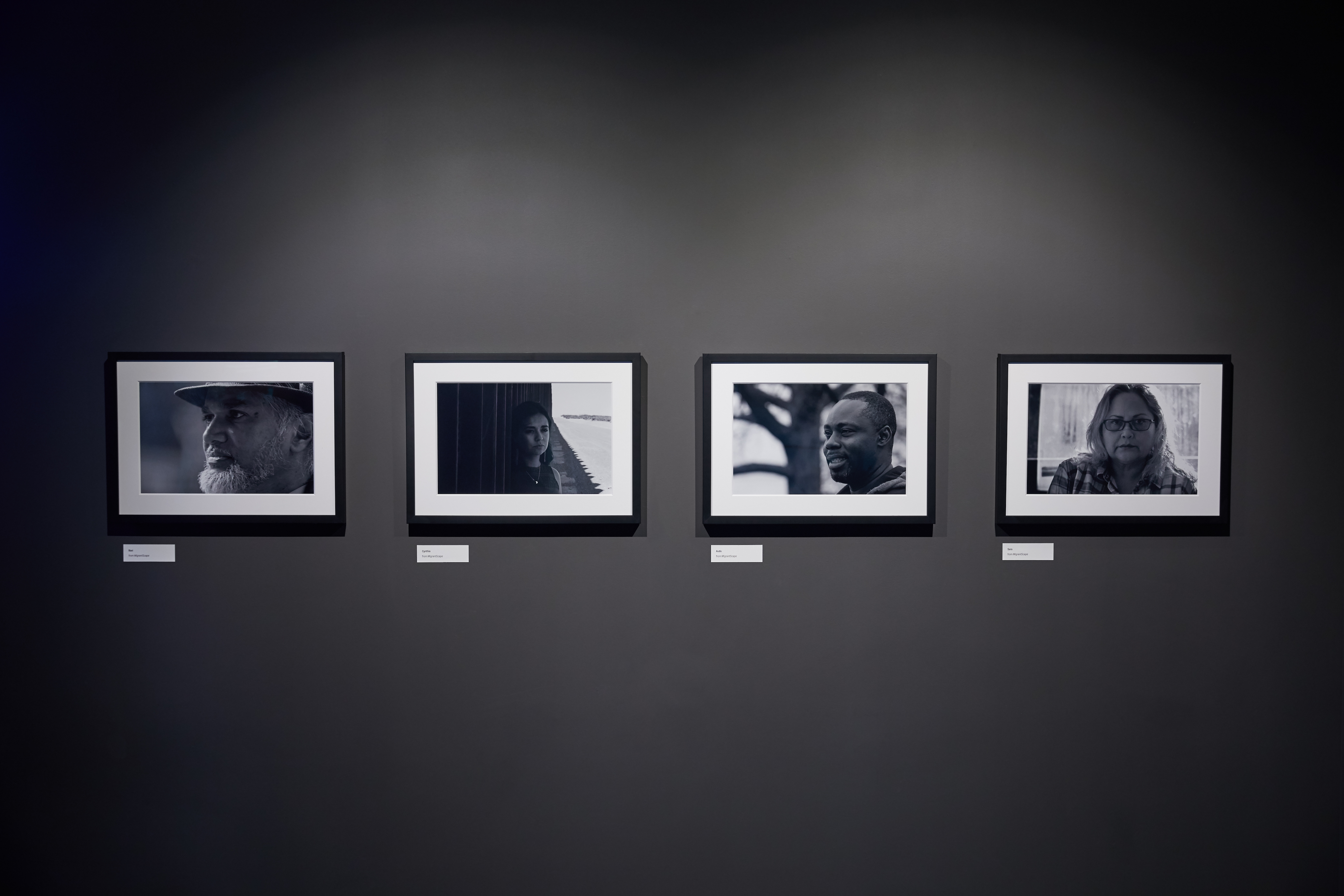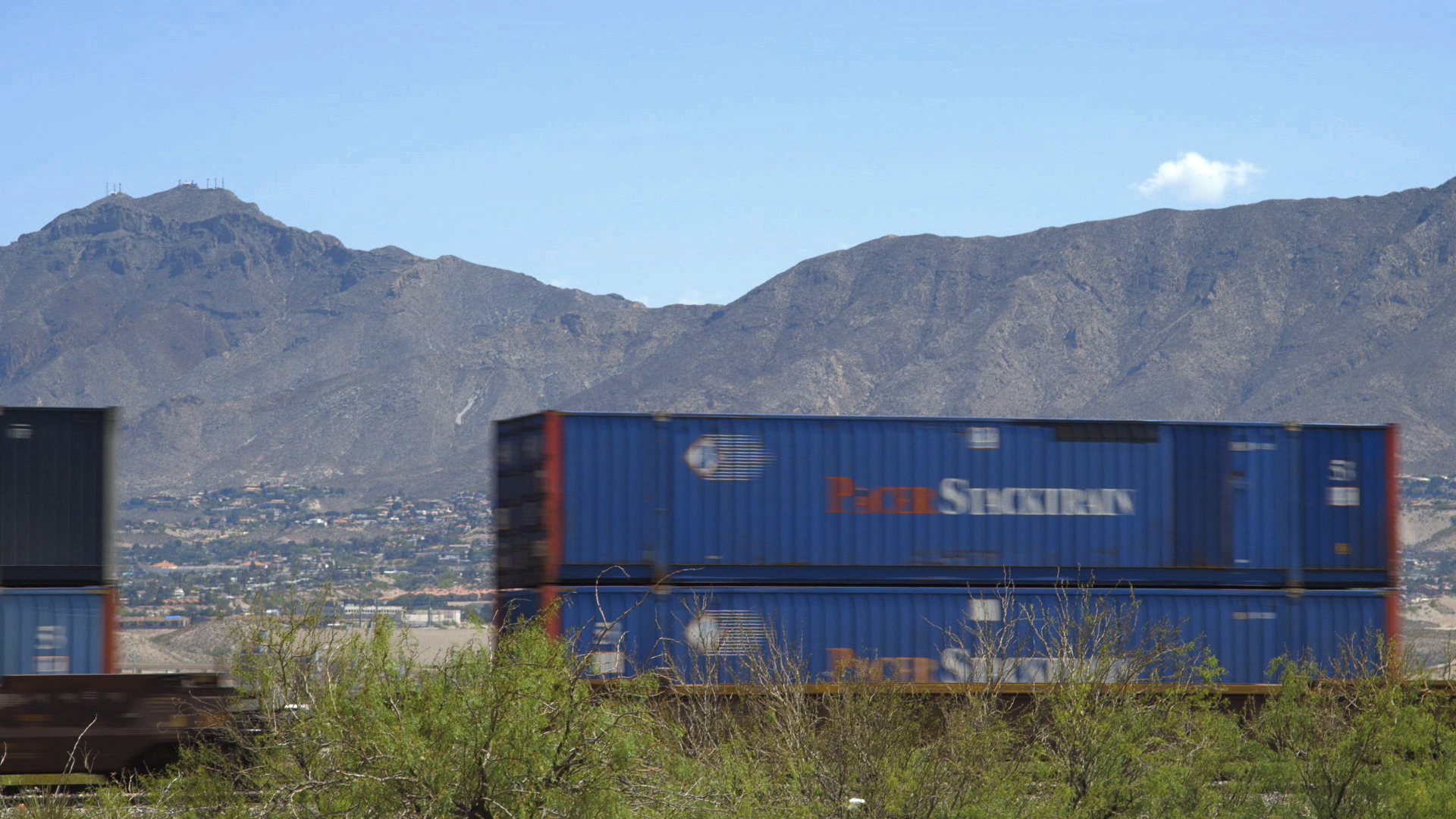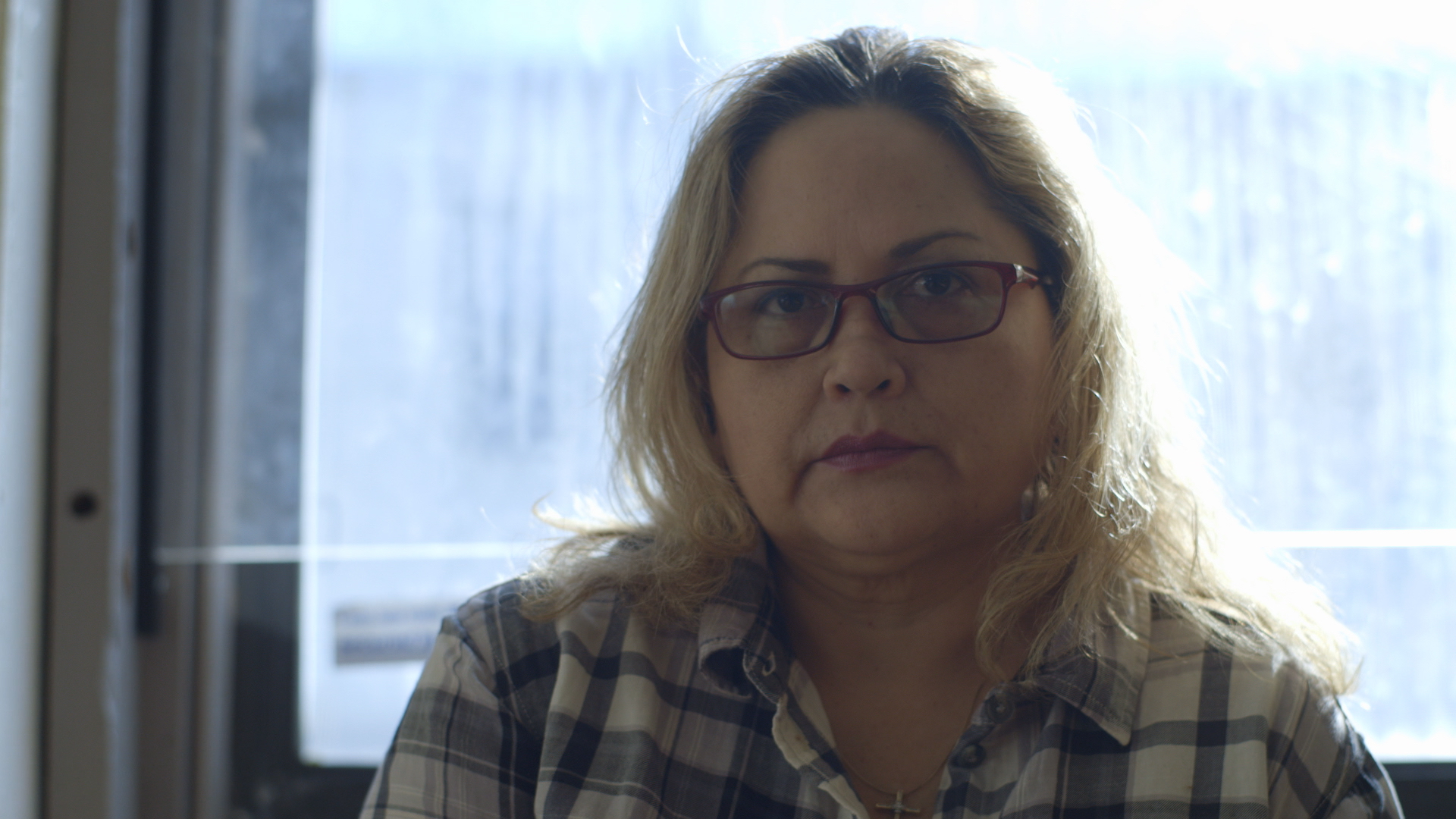In a time where mainstream media’s narrow, criminalized representation of immigrants facilitates white supremacists’ racist agendas, nuanced storytelling can be a defense against the dangers of dehumanization. In going beyond the “good immigrant” or “bad immigrant” dichotomy, the choice becomes either to foster more divide, or to nurture connection.
Audiovisual installation MigrantScape arrives with a sense of urgency for empathetic storytelling, prompting an investigation of the complexities of the migrant experience – a reality lived by nearly 11 million undocumented people in the U.S. Rather than objectifying trauma and the tolls of a restrictive, fear-based immigration system, MigrantScape roots down on lived human experiences through an interrogation of belonging.
The piece, now on view at The Shed, documents the stories of four migrants of different immigration statuses living in New York City and El Paso. The experimental documentary piece weaves together interview footage with Ravi, an Indo Caribbean man with a former criminal conviction who is undocumented; Sara, an Ecuadorian undocumented mother; Audu, a queer Nigerian asylum seeker; and Cynthia, a U.S. citizen Mexican whose parents crossed the border into El Paso, TX when she was born, but who themselves are not U.S. citizens. She grew up with them in Juárez, México.

The installationwas conceptualized and created by activist, cultural organizer, and DJ Thanushka Yakupitiyage, who was born in Sri Lanka, raised in Thailand, and now based in Brooklyn. Also performing under the name Ushka, Yakupitiyage’s voice as a storyteller across disciplines insists upon an intersectional understanding of issues. As she’s previously written for the Huffington Post regarding her current advocacy work in climate justice, these issues must be understood as a result of “capitalism, colonialism, and the consequences of western industrialization.”
In the case of Ravi, who fights an ongoing deportation case and contends with ongoing ICE check-ins, telling his story asserts the dignity and rights of people that have been caught up in a corrupt criminal justice system. Though he has been protected more recently by the 2nd Circuit Court of Appeals following ICE’s alleged attempts to silence his free speech as an activist, Ravi’s story illustrates the difficulty of exiting the system once you’ve been clocked in.
MigrantScape goes on to tell the story of a black LGBTQ migrant Audu, who left his home of Nigeria for fear of his safety because of his outward support and work as an advocate for the queer community in the country. He speaks to a sense of hope, and also impatience, for the resolution of his ongoing asylum case in the U.S.
Sara, born in Guayaquil, Ecuador and now residing in Sunset Park, Brooklyn, speaks to a sense of limbo for her immigration status; of feeling ni de aquí, ni de allá, having spent so much time now in the United States, and not feeling like she can return to Ecuador for fear of not being able to return to her chosen home again. She recounts the story of being detained in Rochester by immigration officials with her ex-husband, contending with the emotional toll of possible deportation, and the fear of not returning to care for her daughters.

Cynthia’s story marks stark before and after points in her experience with immigration policy; a before and after 9/11,and a before and yet to be seen era post-Trump. Her narrative also signifies the crux of MigrantScape’s interrogation of belonging. As the only U.S. citizen in her family, living between El Paso and Juárez, her experience highlights the precariousness of who is afforded the privilege of citizenship, and who isn’t.
The film zooms in on close-up shots of the border wall between Cynthia’s home border cities, the bars in the wall branded with “Made in USA,” and cement bases now poured 12 feet into the ground – a notable difference following the Trump administration’s determined investment in visual markers of violence and intimidation.
“It’s very tangible; the physical presence of the border is such a real manifestation of white supremacy,” Yakupitiyage elaborated. “Only one of the subjects is from the border, but I wanted to juxtapose that with stories from New York by people who are still impacted. Whether you’re near the border or not, there’s still this feeling that there’s something keeping you from something else.”
MigrantScape relies on a DJ’s version of storytelling in both curation and skill sets; the audio component winds between standard documentary interview format before dipping into pauses, drone samples, manipulated voices, and delayed glitches that culminatein a non-linear retelling of these stories. These warping techniques function in a way analogous to stopping or pulling back a record in a live set, demanding the audience’s attention be attuned to nothing more than the chosen message.
Just as a live DJ set relies on a team of partners to host an event, MigrantScape similarly leans on collaboration to execute its vision. Yakupitiyage called on New York based Venezuelan multidisciplinary artist Mariana Martin Capriles (a.k.a. MPEACH) to manage video editing and design, Adam Partridge (a.k.a. Atropolis) to facilitate sound production, Suzi Sadler to direct videography and photography, and Nadia Awad as assistant producer and sound.
Given MigrantScape’s positioning as a public installation in a luxury building on Manhattan’s West 30th Street, the invitation to challenge viewers to not look away is a disruptive and necessary action. “By creating a scored art piece and placing it in a contentious site, we’re calling on viewers to contend with the realities in our communities.”

To create MigrantScape, Yakupitiyage received funding from The Shed’s Open Call, a large-scale commissioning program dedicated to developing and presenting new works from artists based in New York City who have not yet received major institutional support.
The artists of Open Call recently learned that Stephen Ross, billionaire, Equinox & Soul Cycle owner, and host of a recent $250,000-per-ticket fundraiser for Trump is on the board of The Shed. Given the growing movement to hold museums and art institutions accountable for who sits on their board of trustees, The Shed is not exempt from questions of ethics, as well as accountability to artists and to their audience.
Yakupitiyage has also pondered these questions of impact and accessibility in an elitist art world. “What does it mean to be an artist who makes political work, who is engaging with institutions where there’s blood money involved, where there’s conservative people on boards; and also what does it mean as a queer young person of color to want to have opportunities to show meaningful work?”
As MigrantScape runs 24-hours a day in the lobby of The Shed, Yakupitiyage hopes to have taken an opportunity, twisted it, and utilized a public space to contend with the realities of what’s happening in this country. The challenge (and hope) is that people stay with and listen to these truths in a space that wasn’t designed to center immigrant voices – yet these stories persist with courage, regardless.
MigrantScape is on view at The Shed (545 W 30th St, New York, NY 10001) through August 25th. The installation will close with a DJ set on performance on August 25th at 5:30 PM; free tickets are available via The Shed.







